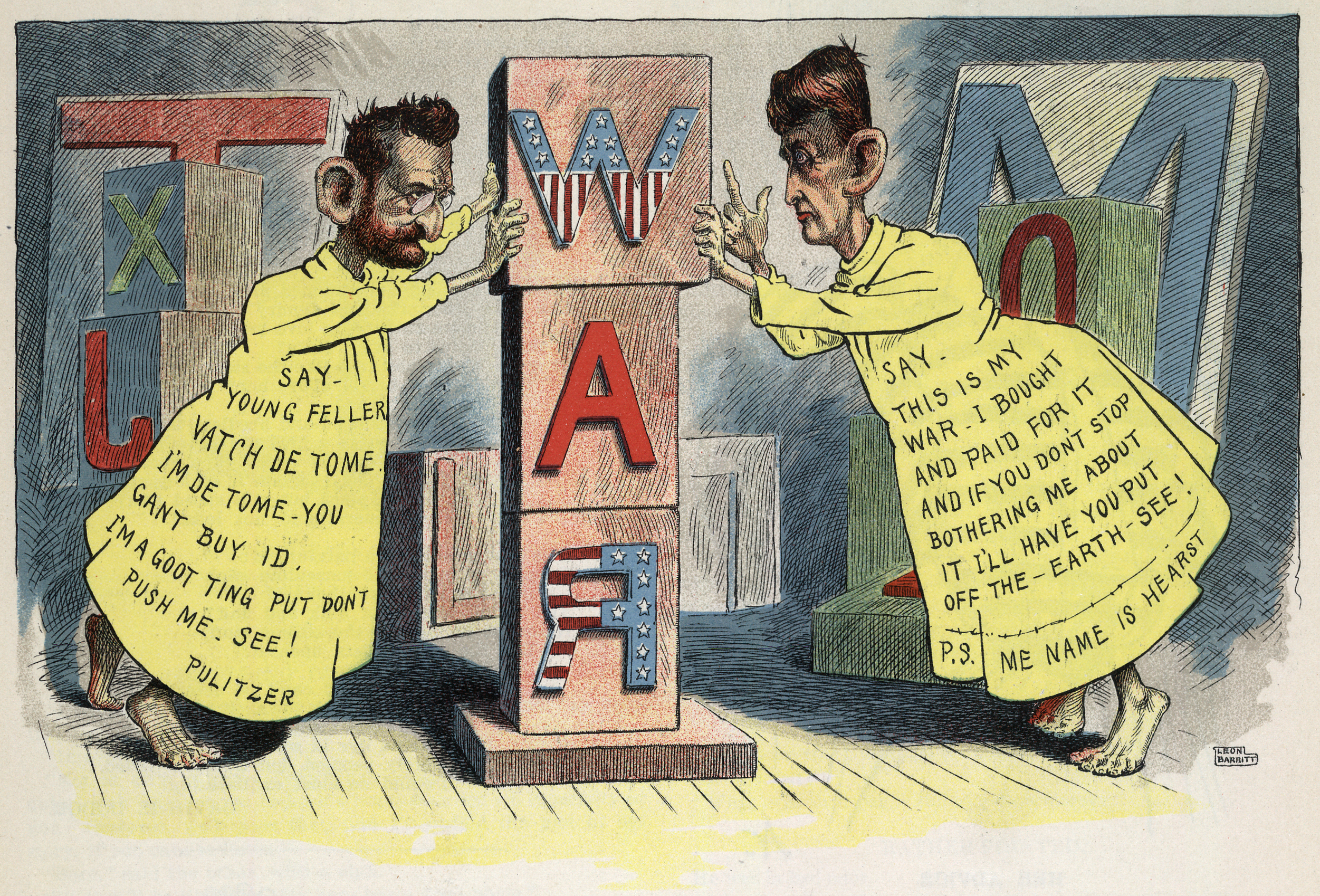Yellow journalism: journalism that is based upon sensationalism and crude exaggeration.
It feels good to know that your work is receiving well-deserved attention. But what lines are you willing to cross to receive it?
The term "yellow journalism" was coined in the 1890's when Joseph Pulitzer purchased the New York World and used sensational and exaggerated reporting against political injustices and social issues. The newspaper received a huge amount of circulation at the time. William Randolph Hearst moved to New York City to compete with Pulitzer and bought the New York World's rival- Journal.
Both newspapers were fabricating their stories to reach a larger audience and make more sales. Their peak competition was in the coverage of events leading up to the Spanish-American War.
This era in journalism's extensive history was influential, to say the least. It generated concerns for journalistic standards of objectivity and accuracy in reporting.
However, the public's trust in accurate reporting suffered. How were people expected to take newspaper's seriously when many reporters threw their morals and ethics out the window to make a few dollars?
Diligent and accurate reporting, because of this, became crucial. Journalist's and news organizations are still trying to earn back their credibility and have the public's trust once again. There are a few bumps in the road when seeking this trust; one of them being click-bait.
The practice of scandal-mongering isn't too far fetch from new-age digital journalistic content. Click-bait is 2018's version of "yellow journalism" and doesn't seem to be going anywhere, anytime soon.
Journalism, for the most part, is about relaying information that is in the best interest of the public. This relaying of information is a part of the democratic decision-making system, and in a time such as this, it is of utmost importance.
Okay, so the significance of having the public on your side is detrimental to their knowledge and in turn- their decision-making. So what can we do to ensure that the trust of the public is in the hands of high-quality journalism?
Don't fall into the void that is click-bait and sensationalized reporting.
Unfortunately, it probably won't go away. But accurate reporting is ultimately more fulfilling then views sourced from unethical practice.

Comments
Post a Comment